Omotosho Power Plant, one of the thermal plants controlled by NDPHC
When the next managing director of the Nigerian Bulk Electricity Trading Plc (NBET) assumes office, one of the knotty issues he will have to crack is the N13.5 billion claim by Sepco-Pacific Energy Co Ltd, owners of Omotosho and Olorunsogo power-generating plants.
The controversy over the payment is believed by industry insiders to have contributed in no small measure to the non-renewal of the appointment of Marilyn Amobi as the NBET MD — although TheCable understands that there were a cocktail of other factors.
The disputed claims are in two parts — the N5.2 billion deducted from Sepco-Pacific’s account by NBET in respect of foreign exchange differentials and another N8 billion “surplus payments” to the two GenCos.
NBET has stood its ground despite reported directives from Vice-President Yemi Osinbajo and a ruling by the power industry regulator, the Nigerian Electricity Regulatory Commission (NERC), that the company, owned by Deji Adeleke, should be paid.
Advertisement
Adeleke — father of Afrobeats mega star, Davido — has threatened to take NBET to international arbitration in London if the payments are not made to his company.
The federal government has become paranoid over international arbitration following its experience with P&ID Ltd in a failed gas processing agreement which has placed a record $9.6 billion liability on Nigeria.
WHAT IS THE DISPUTE?
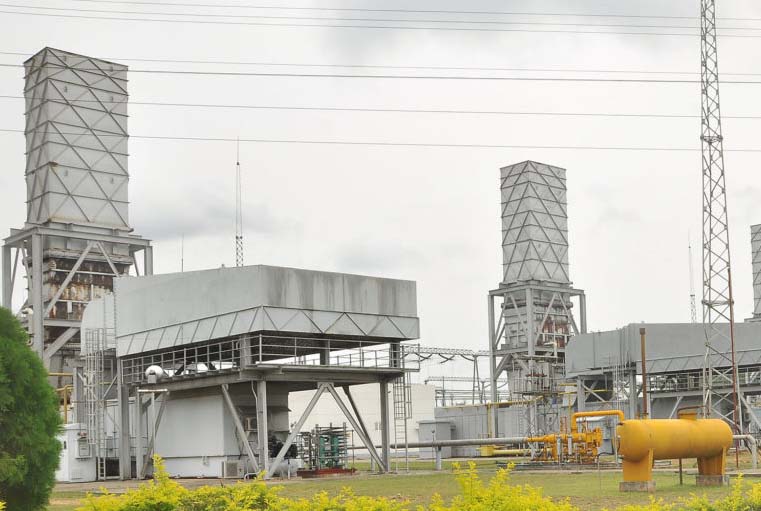
The plants in Olorunsogo, Ogun state, and Omotosho, Ondo state, which can generate 304mw each, are owned by Sepco-Pacific Energy.
Advertisement
Adeleke, who holds a PhD in international business, is the chairman of the company.
In September 2013, his plants entered into power purchase agreement (PPAs) with NBET — the company that buys power from GenCos and sells to DisCos and then settles the invoices.
Under the PPAs, the base exchange rate to be used in calculating the payments was fixed at N157/$, although there was a provision for “true-up invoices” which would reflect the actual rate in invoicing the DisCos.
However, NBET raised issues with the invoices, maintaining that Sepco-Pacific had wrongly used a different base exchange rate — N157/$ — and that the rate should be N169/$ for the invoices in question.
Advertisement
With a lower exchange rate, Sepco-Pacific would get more dollar value from the payments. The adjustment to N169/$ lowered its claims by N5.2 billion.
Sepco-Pacific contested NBET’s decision to use N169/$1 and escalated the matter to NERC.
In its determination in April 2017, NERC directed NBET to use N157/$1, and that meant paying Sepco-Pacific the N5.2 billion in dispute.
Also in dispute is the N8 billion paid to Omotosho and Olorunsogo for power supplied to DisCos through the national grid.
Advertisement
Payments made to four plants — including the N8 billion to Omotosho and Olosunsogo — were above what was approved by President Muhammadu Buhari and NBET has insisted that it must be refunded as directed by the federal government.
In 2016, Olorunsogo had received $13,782,130 (N4,208,535,131.25, at the prevailing exchange rate) and Omotosho got $13,166,466.88 (N4,020,520,405.38) — in excess of what the president approved.
Advertisement
Following a reconciliation of accounts contained in a report dated May 23, 2019, NBET was directed by the federal government to deduct the overpayment to the four power plants, out of which Omotosho and Olorunsogo had to return over N8 billion.
Meanwhile, NBET also alleged that from May 1, 2018 to June 30, 2019, Sepco-Pacific was earning a premium of N200 million monthly and would have to refund over N15 billion as a consequence.
Advertisement
According to NBET, the amount will be used to “reduce” the indebtedness to Adeleke’s company.
In effect, Sepco-Pacific will now be owing rather than being owed — if its N13.5 billion claim is deducted from the premium of over N15 billion it earned for 13 months.
Advertisement
A LITANY OF LETTERS
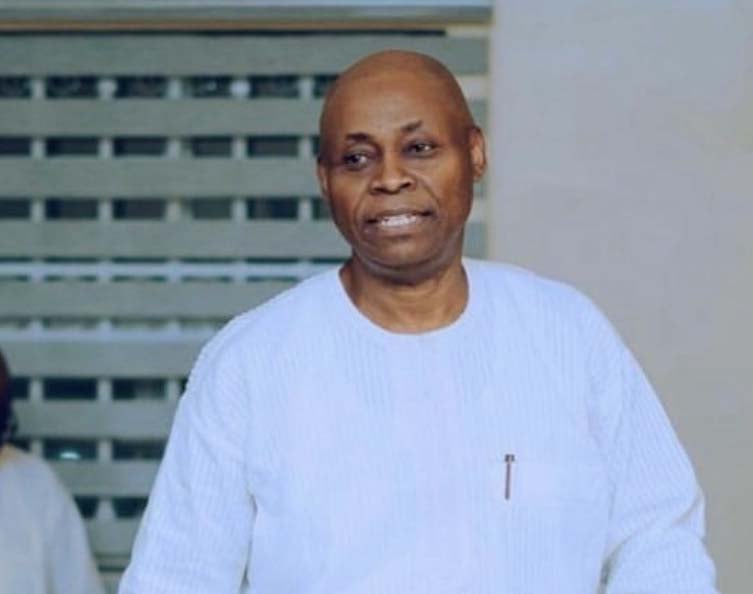
In a letter dated May 4, 2020, Adeleke had listed his grievances with NBET and threatened to head to arbitration in the UK.
His major grievances were that NBET refused to comply with NERC’s ruling that N157/$1 being used instead of N169/$1 and that NBET also refused to pay the N8 billion — which it had withheld following the presidential directive.
He also complained that with regards to the March 2020 invoice, NBET refused to use the quantities in the PPAs but opted for the capacities in the final settlement statement issued by the Market Operator to process the payment for the electricity delivered to the national grid by Olorunsogo and Omotosho.
In the letter seen by TheCable, Adeleke told Amobi: “NBET, under your leadership have (has) severally ignored NERC’s rulings and acted beyond your authority on anything that concerns Olorunsogo & Omotosho Power Plants. But very soon you will have to explain to the whole Nigeria the reason you are out to destroy Olorunsogo and Omotosho Power Plants. Your type does not build anything but destroys. Instead of encouraging investors in the Power Industry you are out to destroy investments.
“In your almost 4 years as MD NBET, you have not added value to the Nigerian Electricity Industry. Instead of payments from DISCOs increasing, it is decreasing, and it does not bother you. How many new Investors have you attracted to Nigeria? How many PPAs have you executed since you came to office? The Nigerian Electricity industry will not GROW as long as you are allowed as MD of NBET to disregard NERC, the Industry Regulator without consequences.”
Adeleke accused her of playing soft with DisCos, suggesting that there is something untoward going on.
“You have not done anything in almost 4 years to insist that DISCOS make the Minimum payment on the Electricity GENCOs GENERATE at HUGE COST and high Indebtedness to Banks. Why have you been shielding the DISCOs? Why have NBET NOT DRAWN ON DISCOS’ LETTERS of CREDIT to pay the GENCOs? Why have NBET not written an ordinary DEMAND LETTER to the DISCOS with a threat that their L/Cs will be DRAWN upon? These are questions you need to answer to the whole industry and explain the seemingly unholy alliance between YOU and the DISCOs,” he wrote.
“You deducted the sum of N5.25 Billion from Olorunsogo & Omotosho Power Plants and refused to refund the money almost 2 years after NERC ruled that the Base Exchange Rate, which you unilaterally and illegally changed to N169/$, should remain the same at N157/$ as stated in the PPAs. And as a result of your refusal to refund the N5.25Billion, Olorunsogo and Omotosho Power Plants had to borrow money to pay 100% of Gas Invoices for period of January 2019- September 2019. You also deducted from the amount NBET owes Olorunsogo & Omotosho Power Plants the sum of over N8Billion claiming that the Market Operator overpaid both Power Plants despite the RECONCILIATION signed by the Market Operator and Power Plants, without the courtesy of informing the Power Plants in writing for such a huge amount.
“According to the PPAs the Tariff for both Capacity & Energy becomes lower in the 7th year of the Contract, which NBET implemented immediately on Olorunsogo Power Plant on the commencement of its 7th Year, and that is perfectly in order. However you have refused to recognize the Exchange Rate True Invoices submitted by Olorunsogo & Omotosho Power Plant, which is provided for in Schedule 6 of the PPAs, saying each time that NBET is not ready to treat Exchange Rate True-ups yet. The PPAs did not give NBET the liberty to decide ‘if & When’ the Exchange Rate True-up invoices will be recognized and accepted.
“One can safely conclude that any provision of the PPAs that reduces the Plants revenue is implemented without delay, while any provision of the PPAs that will increase the Plants revenue is delayed indefinitely. How can any company survive under this type of business atmosphere under your leadership of NBET? This type of poisonous business atmosphere only lays the foundation for blackmail and corruption.”
AMOBI STANDS HER GROUND
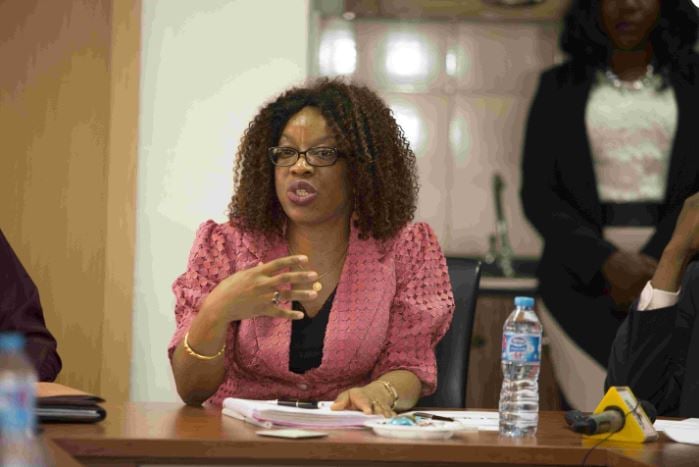
However, Amobi, in her response dated June 8, 2020, maintained that she did not do anything wrong, pointing out the clauses in the various agreements which stipulate the basis for the calculation of quantities and make provisions for corrections where errors occur.
She said in the market rules the plants signed with the Market Operator (a division of the Transmission Company of Nigeria, TCN), disputes on quantities and settlement data are not supposed to be referred to either NERC or NBET but are to be resolved between the participant (GenCo) and the operator.
She also said it was not a matter to be taken to arbitration.
On the use of base exchange rate of N157/$1 and N9.47kWHr as derivable tariff as directed by NERC, Amobi said the commission appeared not to be conscious of the fact that the exchange rate “does not exist in its MYTO Order of the same Commission as a Base Exchange Rate that would be used to architect the tariff of generation companies in 2013”.
She wrote: “NBET is, however, concerned that the Commission justified its ratification of the erroneous N157/US$1 on the suggestion that the derivable tariff of NGNN47kWHr is lower than the NGN10.423/kWHr that was originally sought.
“In NBET’s opinion, if the Commission carried out a further robust analysis of the elements of the derivable tariff viz-a-viz the assumptions in the MYTO for generation companies in 2013, it would have discovered that your companies earn a premium of over N200Million each month.
“Furthermore, NBET believes that the reason the Commission put forward to justify the asking that your base exchange rate be reversed to NGNN157/US$1, is NOT a criterion for setting rates in network utilities.
“By a forensic evaluation of the elements of the tariff for each of the power plants in its portfolio, NBET discovered that your plants had a Base Exchange Rate of N157/US$1 and not N169/US$1 as contained in the Multi Year Tariff Order of the Commissions that was in effect in 2013 when the PPA was executed; and which was the basis for arriving at the base tariffs for both Olorunsogo and Omotosho.”
VICE-PRESIDENT OSINBAJO ‘INTERVENES’
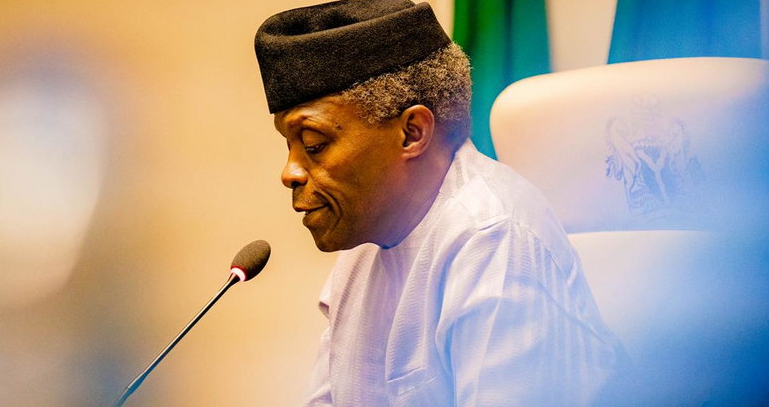
NERC had curiously approved N169/$ a year earlier, only to rule that N157/$ should be applied, saying it was in “error”.
While NBET was preparing its response, in form of an appeal on the ruling, to NERC, Adeleke reportedly got Osinbajo involved in the dispute.
In her letter, Amobi wrote: “Sadly, before NBET could conclude and file its representation to the Commission, you escalated the matter to the Vice-President, whom noting that the applicable Base Exchange Rate for your power plants must be the N157/US$ that is contained in the executed PPA and no more, directed NBET to implement the N157/US$ with immediate effect.
“As you know, the approximate sum of N5.2b that you claim NBET owes to your power plants, as a result of using an ‘incorrect’ Base Exchange Rate of NGNN169/US$1 over the thirteen (13) months (1st of May, 2018 to 30th of June, 2019), before the VP ratified the N157/US$1, was charged to the respective debt outstanding’s due to your power plants.
“NBET is concerned about your persistent quest for NBET to still pay your power plants the said sum of N5.2Billion, despite knowing that the said sum is still in dispute and NBET is yet to pass this cost onto the distribution companies. It is even so when you have deployed all forms of tactical approaches to having these funds paid to your companies without the conclusion of the processes that we need to follow to aggregating the premium your power plants have earned which should be refunded and passed on to the consumers from whom your companies took the funds from.
“You have done the following: issued threats to the MD/CEO at different occasions and sought interventions from our principals in government. In the latter, you often present to them chronicles of the situation which you know to be untrue. Seeing that you have not made any progress, you have now resorted to use the print and social media to, in our opinion, blackmail the company and the government.
“As you know, by the forensic evaluation NBET carried out in 2017, we discovered other generation companies like your power plants who earned premiums. We have since then concluded and clawed back N18.9Billion as well as US$76Million from two separate power plants.”
It would appear premium taking — via the use of lower base exchange rate and other means — is a common practice.
Amobi said in her memo that NBET was about to claw back about $14 million from another power plant.
WILL SEPCO-PACIFIC REFUND THE N15BN PREMIUM?
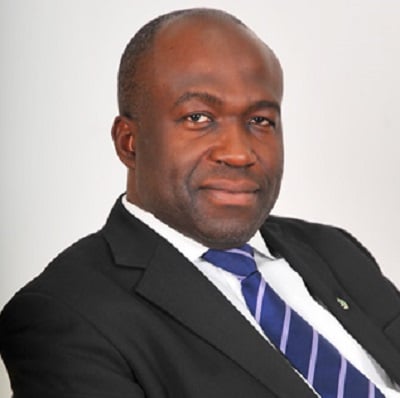
In another response dated June 10, 2020, Adeleke appeared to be further enraged, accusing Amobi of disrespecting Osinbajo.
He said the reference to the vice-president “is not factual and a total misrepresentation of what actually happened and in my opinion an insult on the person of the Vice President of the Federal Republic of Nigeria. It shows how low NBET is willing to go to mislead, so as to justify its apparent Breach of Contract and its unwillingness to subject itself to the Regulatory oversight of NERC. I believe that information on a letter that is copied to Ministers, CBN Governor, Chiefs of Staff (COS) to both the President and the Vice President and Chairmen of Government Agencies, should not attempt to distort facts to justify a position that cannot be sustained upon proper scrutiny”.
He said the the total amount of the “illegal deduction in the sum of N5.25Billion” should be paid with all accrued interest “without delay”.
He also said disputes under the PPAs allow for arbitration in London, contrary to Amobi’s claims in her letter.
In what is most likely a coincidence, on June 8 — the day Amobi wrote to Adeleke — Buhari approved that Nnaemeka Ewelukwa, the company’s general counsel and secretary, be appointed as the new NBET MD after her four-year tenure.
Amobi had also been at loggerheads with the members of the house of committee on power who had hot exchanges with her during an oversight visit to NBET earlier in the year.
Ewelukwa, the new man in the saddle, will have to deal with the fractious relationship between NBET and Sepco-Pacific Energy Co Ltd.
Industry watchers will also wait to see how he will handle the issue of refund of premium as stated in Amobi’s letter: “We look forward to having our next conversation on the premium you have earned on the Base Exchange Rate of NGN157/US$1 since 2013, which we need to claw back and reimburse consumers through the distribution. As you know, this aggregated sum which we estimate to be over N15Billion, will significantly reduce the debt the FGN owes to your company through NBET, pursuant to the terms of the take or pay PPA your generation companies hold.”
1 comments
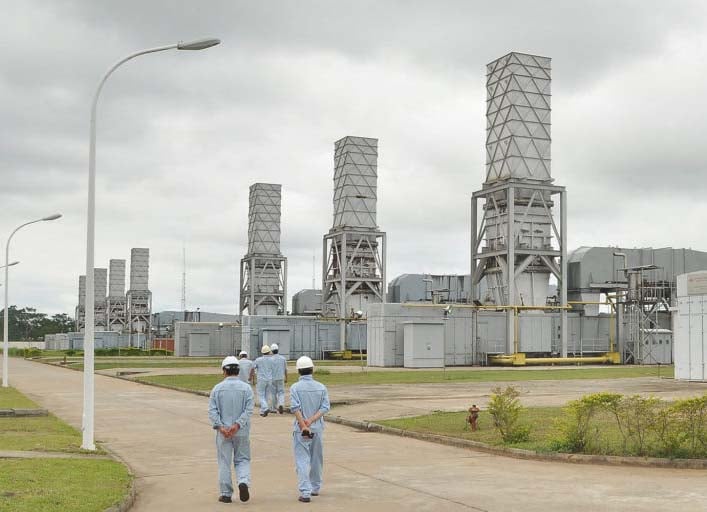
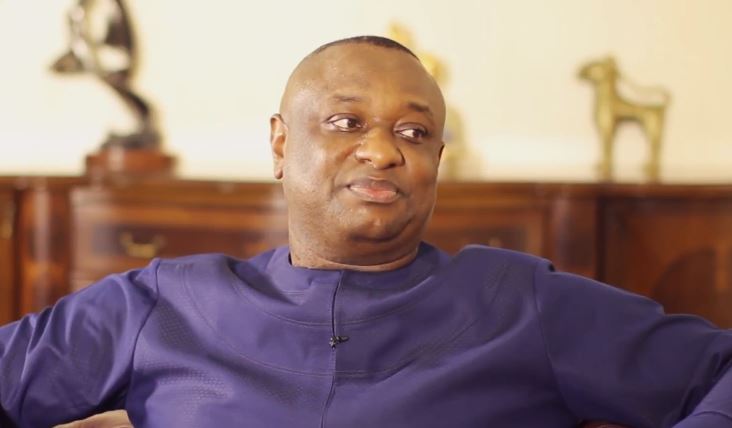





why blind arguments leads to useless ends, federal government was aware of dwindling in price of naira so if they chose to transact in dollar instead of national currency naira ,they must pay in dollar equivalent ,how can a country money falls below 200 percent in 5 years ,it is a disgraced to this government